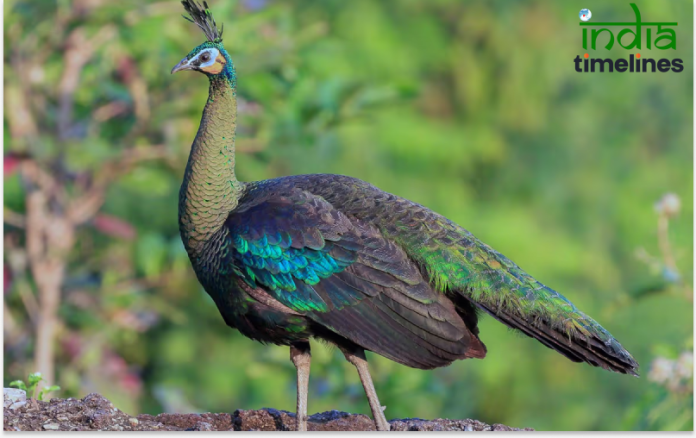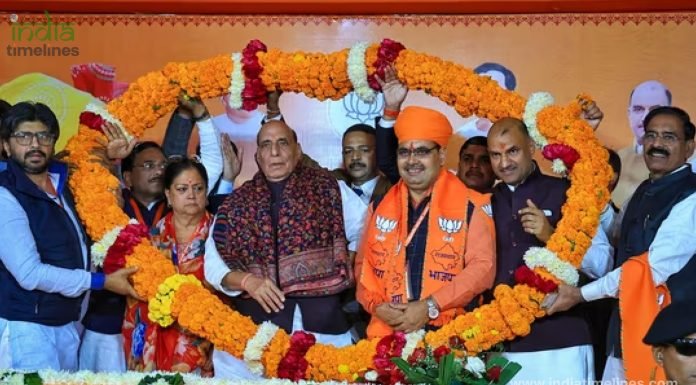
Peacocks are known for their stunning plumage and majestic presence. With their vibrant colors and elegant displays, these birds symbolize beauty, grace, and royalty. Found primarily in Asia, these magnificent creatures are celebrated for their large size and extravagant feathers. In this article, we’ll explore the top 10 most beautiful and largest peacocks in the world, showcasing their unique features and where they can be found.
Peacocks are more than just birds; they are the epitome of natural beauty. With their dazzling feathers and captivating displays, peacocks have been admired by cultures worldwide. Let’s take a journey through the top 10 most beautiful and largest peacocks in the world.
1. Indian Peafowl (Pavo cristatus)
The Indian Peafowl, also known as the blue peacock, is the most iconic and widely recognized species of peacock. Native to India and Sri Lanka, this species boasts a dazzling array of blue, green, and gold feathers. The male’s extravagant train can span up to 5 feet in length, making it one of the largest peacock species in the world.
2. Green Peafowl (Pavo muticus)
The Green Peafowl is another breathtaking species found in Southeast Asia, particularly in countries like Myanmar, Vietnam, and Thailand. Known for its emerald green feathers and long, slender train, this species is larger and more majestic than its Indian counterpart. The male’s train can reach lengths of 6 feet, and its iridescent feathers give off a mesmerizing glow in sunlight.
3. Congo Peafowl (Afropavo congensis)
The Congo Peafowl is a rare and unique species native to the rainforests of the Congo Basin in Africa. Unlike other peafowl, the Congo Peafowl is smaller and has a more subtle appearance, with a combination of blue, green, and brown feathers. Its beauty lies in its distinct, understated elegance and rarity in the wild.
4. White Peafowl
White Peafowl are not a separate species but rather a color mutation of the Indian Peafowl. These peacocks are incredibly striking with their all-white feathers, which create an ethereal and almost angelic appearance. Their large size and pure white train, which fans out to create a stunning display, make them one of the most sought-after types of peafowl.
5. Black-Shouldered Peafowl
The Black-Shouldered Peafowl is another color variation of the Indian Peafowl. Its unique combination of dark, iridescent feathers on the shoulders and the typical blue and green hues of a peacock makes it stand out. These peacocks are known for their striking contrast in colors and their large size, with males boasting an impressive train that can rival other large peacock species.
6. Opal Peafowl
Opal Peafowl are known for their soft, silvery-blue feathers that shimmer under the light. This unique color variation, combined with the peacock’s large, elaborate train, creates a stunning visual effect. The Opal Peafowl is not only beautiful but also quite large, with males exhibiting long, flowing tails that make their displays even more mesmerizing.
7. Cameo Peafowl
The Cameo Peafowl is a lighter, more delicate version of the Indian Peafowl, with cream and beige tones dominating its plumage. This variation is known for its soft, pastel-like appearance, and its beauty is often compared to that of a delicate painting. Cameo Peafowl are large, and their train is just as grand as their brightly colored counterparts, making them a striking addition to the list.
8. Purple Peafowl
The Purple Peafowl is a rare color variation that stands out for its deep, royal purple hues. These peacocks are incredibly eye-catching, and their train, which can span up to 6 feet in length, displays a dazzling array of purple feathers. The rarity and unique coloration of the Purple Peafowl make it one of the most beautiful peacock variations in the world.
9. Peach Peafowl
The Peach Peafowl is another stunning variation of the Indian Peafowl, characterized by its soft peach and cream-colored feathers. This unique combination of colors creates a warm, sunset-like effect on its plumage. The Peach Peafowl is also quite large, with a train that fans out to reveal a beautiful array of soft, pastel feathers.
10. Spalding Peafowl
The Spalding Peafowl is a hybrid between the Indian Peafowl and the Green Peafowl. This hybrid species combines the best features of both, resulting in a large, vibrant peacock with a unique blend of colors. The Spalding Peafowl is known for its long train and its striking appearance, making it one of the most beautiful and largest peacocks in the world.
Conclusion
Peacocks are truly one of nature’s most magnificent creations. From the dazzling Indian Peafowl to the rare Purple Peafowl, each species and variation has its unique charm. Whether it’s their vibrant colors, large size, or stunning displays, peacocks continue to captivate people around the world. Incorporating these birds into wildlife conservation efforts ensures that future generations can continue to enjoy their beauty.
FAQs
- What is the largest species of peacock?
The Green Peafowl is the largest species, with males having a train that can reach up to 6 feet in length. - Are white peafowl a separate species?
No, white peafowl are a color mutation of the Indian Peafowl, not a separate species. - What is the most colorful peacock?
The Indian Peafowl is considered the most colorful, with vibrant blue, green, and gold feathers. - How long is a peacock’s train?
A peacock’s train can range from 4 to 6 feet in length, depending on the species and age of the bird. - Where can I find the Green Peafowl?
The Green Peafowl is native to Southeast Asia, particularly in countries like Myanmar, Vietnam, and Thailand.


































Very nice post. I just stumbled upon your blog and wished to say that I have truly enjoyed surfing around your blog posts. After all I will be subscribing to your rss feed and I hope you write again soon!